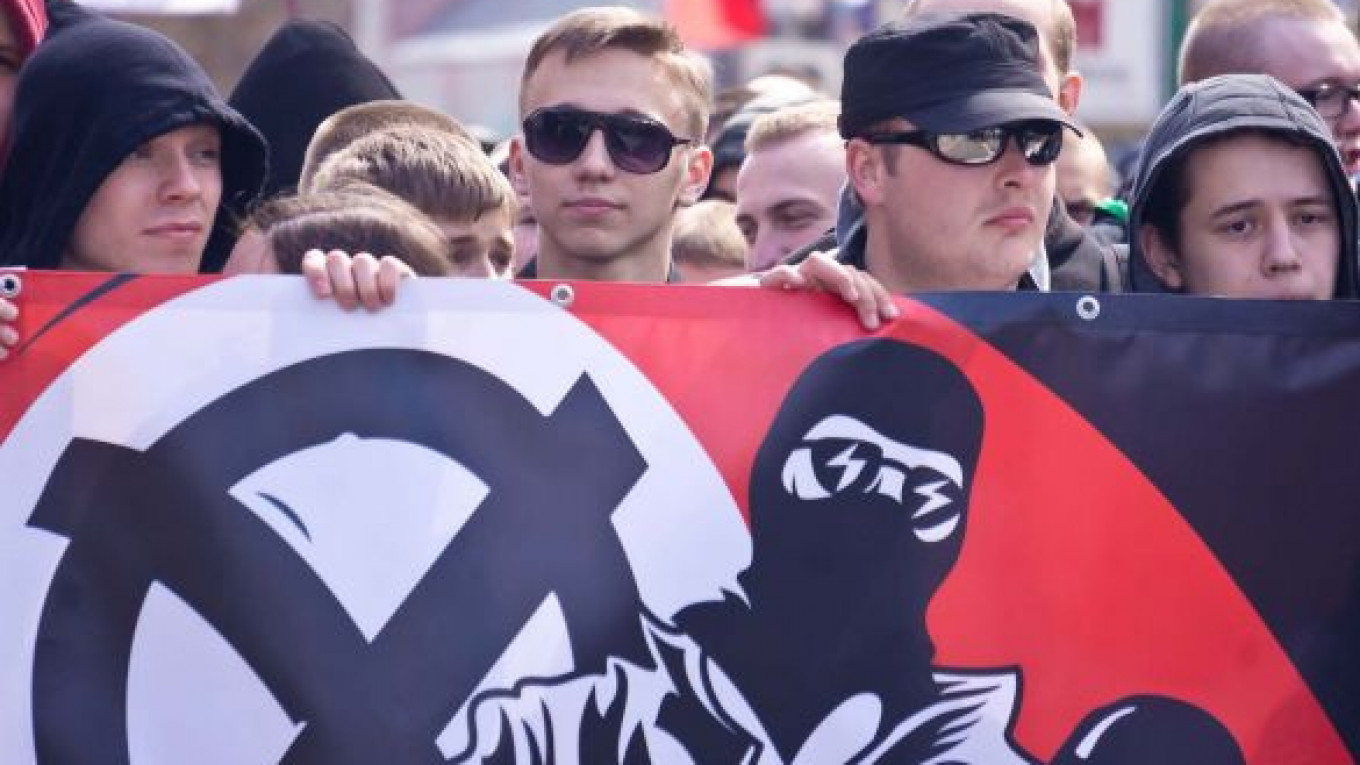In his famous 1994 essay "The USSR as a Communal Apartment," Yury Slezkine chronicles the rise of nationalism in the Soviet Union, likening the state to a communal apartment in which each "recognized" ethnicity has their own private room in which to flourish.
For the West, the 1990s were a period in which all of the myriad nationalities previously hidden within the aegis of the Soviet Union surged outwards, creating their own histories, literatures, and diasporas. Over the past two decades, we have managed to differentiate in our consciousnesses some of the new states created, and historians have begun looking back with greater clarity at how these nations formed.
Jeremy Smith's new book "Red Nations: The Nationalities Experience in and after the USSR" is an in-depth look at Soviet nationality policy, tracing the development of this policy from its inception with Lenin's promotion of nationalism, through Stalin's deportations, all the way to the collapse of the Soviet Union into constituent republics and the post-Soviet world.
Covering a vast region and a huge number of groups over a period lasting nearly a century, Smith's project is extremely ambitious. The scope of his work prevents him from going into great depth about any particular group or policy, yet this same broadness forces him to streamline his work, avoiding excessive detail that might have put off casual readers.
As it is, Smith's work is an interesting read for a serious student of history or an armchair enthusiast. Focusing on the entire history of the Soviet Union and into the post-Soviet era, readers can see the issue of nationality develop, as successive Soviet leaders fail to adequately confront the issue of the multinational state, using a variety of mechanisms to temporarily "fix" the nationality problem, either harnessing nationality to serve their purposes, or repressing national movements in favor of Soviet unity.
Beginning with a brief overview of nationality policies and populations in the Russian Empire, the "prison-house of nations," Smith starts his narrative with the Russian Revolution, noting the disparity between the solidly Russian Bolsheviks of Petrograd and Moscow, and the multiethnic residents of the far-flung empire.
This contrast creates the conflict that drives the narrative for the rest of the book, as successive leaders try to reconcile the ruled ethnicities both with each other and with their Russian rulers. Lenin first encourages national movements in order to win over support
during the civil war and later limits the number of "recognized" nationalities that are allowed to have autonomous structures.
Under Stalin, the situation is reversed — national movements are discouraged, ethnic leaders are purged, and mass deportations are inflicted on the peoples of the Baltic and the Caucasus. The backlash against Stalin leads to a reversal of this policy under Khrushchev and a general growth of national movements until the era of Gorbachev and Perestroika, when the Soviet leadership failed to control the burgeoning nationalism of the union republics, resulting in the collapse of the U.S.S.R.
Reading the book makes one realize the extreme difficulty of trying to govern a multiethnic state like the Soviet Union, and the fine balance between encouraging and suppressing national movements that the Soviets never quite seemed to attain.
Furthermore, one cannot help but note the many similarities between the problems of the Soviet Union and the Russian Federation. While the union republics may have seceded, Russia still has huge ethnic minorities, and many regions with predominantly non-Russian populations.
Putin's government has generally promoted a policy of ethnic tolerance, generously subsidizing the republics of the Caucasus and attempting to discourage separatism in Tatarstan and the Far East. However, a new generation of opposition politicians like Alexei Navalny have loudly criticized government support for non-Russians, and race riots like those at Biryulyovo illustrate the ongoing discomfort felt by Russians about their place in a multiethnic state.
While open warfare in the Caucasus has largely ended, ongoing violence suggests unresolved ethnic issues, and continuing immigration from the former Soviet republics, as well as Chinese immigration into Siberia and the Far East, promises future demographic issues.
While Putin's government seems to be trying to find the proper balance between nationalism and unity, it remains to be seen whether he will be able to hold back the rising tide of Russian and Orthodox nationalism, and what will happen in the eventual post-Putin era.
Connecting Soviet history to modern Russia, Jeremy Smith's "Red Nations: The Nationalities Experience in and after the USSR" is a fascinating read for anyone interesting in questions of nationality in the post-Soviet space. The book is available from Cambridge University Press for a list price of $34.99. ISBN: 9780521128704
Contact the author at [email protected]
A Message from The Moscow Times:
Dear readers,
We are facing unprecedented challenges. Russia's Prosecutor General's Office has designated The Moscow Times as an "undesirable" organization, criminalizing our work and putting our staff at risk of prosecution. This follows our earlier unjust labeling as a "foreign agent."
These actions are direct attempts to silence independent journalism in Russia. The authorities claim our work "discredits the decisions of the Russian leadership." We see things differently: we strive to provide accurate, unbiased reporting on Russia.
We, the journalists of The Moscow Times, refuse to be silenced. But to continue our work, we need your help.
Your support, no matter how small, makes a world of difference. If you can, please support us monthly starting from just $2. It's quick to set up, and every contribution makes a significant impact.
By supporting The Moscow Times, you're defending open, independent journalism in the face of repression. Thank you for standing with us.
Remind me later.






